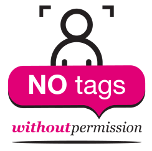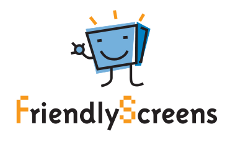During his speech at the First International Digital World Encounter (ESSE), Jorge Flores, director of FriendlyScreens, launched officially the NoTagsWithoutPermission campaign in three languages (Spanish, English and Portuguese). This campaign looks for public support to convince those who have a saying on social networks to change the way users can be tagged by others. The goal is that social networks modify how tags are configured so that no one can tag us in photos without our permission. PantallasAmigas has stressed this issue in the past, making available many resources to create awareness and offer solutions.
The central hub of the campaign is the NOTAGSwithoutpermission.com web site, where the challenge, objetives and specific demands are explained. These requests are a consequence of thorough research on the issues that current tagging policies create; issues that cause serious problems on the privacy of a substantial number of users around the world.
During these initial days, FriendlyScreens will begin a full-throtle promotion of the campaign to get cyber citizens to participate actively on it, and to make social networks facilitate the defense of the right to privacy. To begin with, a number of informative videos has been made available, and an online petition set on change.org. The hashtag #NOTAGSwithoutpermission can be used on Twitter, and the campaign has created pages on various social networks. For those who want to insert a banner on their blogs or websites, appropriate code snippets are available.
According to Jorge Flores, “from FriendlyScreens we simply try to drive and bring together this existing demand, and to raise awareness on the issue. A few months ago we launched the site www.etiquetassinproblemas.com (Spanish) emphasizing in the actions of the users. We now need to look for the cooperation of the social networks themselves, focusing more specifically on children who are often victims of attacks and mockery through tags; it is very common in cyberbullying situations. “

